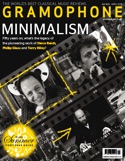Texte paru dans: / Appeared in: |
|
|
Outil de traduction (Très approximatif) |
|
|
Reviewer: David Vickers
All of the music here is scored for soprano, strings and continuo but most of the arias are different in personality and dramatic intention. They enable an intriguing assessment of how far apart Bononcini and Scarlatti are stylistically from the next generation of composers, even though only a few seasons separated their Roman productions. For instance, Bononcini’s old-fashioned plaintive ‘Barbara siete, o Dei’ from L’Etearco (revised for Rome 22 years after its original production in Vienna) is a world away from the galant sway of ‘No, non mi basterà bocca vezzosa’ from Feo’s Andromaca (1730). Robert Invernizzi’s singing is sensational for its classy divisions, intelligent ornamentation and characterful poise. Fluid cascades of rippling coloratura are required in ‘Volo il mio sangue a spargere’ from Porpora’s Adelaide (1723) and are utilised to make a declamatory impact in ‘Cieca nave, infidi sguardi’ from Sarro’s Ginevra (1720). A wider variety of instrumentation might be attractive in future volumes, and such a long booklet essay ought to say at least something about the music! |
|
|
|
|
|
Cliquez l'un ou l'autre
bouton pour découvrir bien d'autres critiques de CD |
|

/8424562226081.jpg)


